formerly eScholarship Editions


|
|
|
|
Your request for similar items found 20 book(s). | Modify Search | Displaying 1 - 20 of 20 book(s) | |
| 1. | 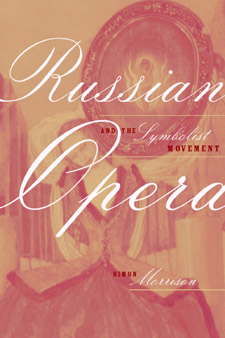 | Title: Russian opera and the symbolist movement Author: Morrison, Simon Alexander 1964- Published: University of California Press, 2002 Subjects: Music | Opera | Musicology | Composers | Russian and Eastern European Studies | Literature Publisher's Description: An aesthetic, historical, and theoretical study of four scores, Russian Opera and the Symbolist Movement is a groundbreaking and imaginative treatment of the important yet neglected topic of Russian opera in the Silver Age. Spanning the gap between the supernatural Russian music of the nineteenth century and the compositions of Prokofiev and Stravinsky, this exceptionally insightful and well-researched book explores how Russian symbolist poets interpreted opera and prompted operatic innovation. Simon Morrison shows how these works, though stylistically and technically different, reveal the extent to which the operatic representation of the miraculous can be translated into its enactment. Morrison treats these largely unstudied pieces by canonical composers: Tchaikovsky's Queen of Spades, Rimsky-Korsakov's Legend of the Invisible City of Kitezh and the Maiden Fevroniya, Scriabin's unfinished Mysterium, and Prokofiev's Fiery Angel. The chapters, revisionist studies of these composers and scores, address separate aspects of Symbolist poetics, discussing such topics as literary and musical decadence, pagan-Christian syncretism, theurgy, and life creation, or the portrayal of art in life. The appendix offers the first complete English-language translation of Scriabin's libretto for the Preparatory Act. Providing valuable insight into both the Symbolist enterprise and Russian musicology, this book casts new light on opera's evolving, ambiguous place in fin de siècle culture. [brief] Similar Items |
| 2. | 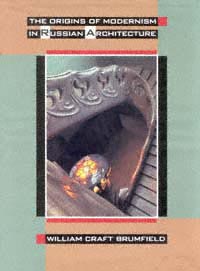 | Title: The origins of modernism in Russian architecture Author: Brumfield, William Craft 1944- Published: University of California Press, 1991 Subjects: Architecture | Architectural History | Russian and Eastern European Studies Publisher's Description: The dramatic transformation of Russian architecture from the 1880s to the 1917 revolution reflected the profound changes in Russian society as it entered the modern industrial age. William Craft Brumfield examines the extraordinary diversity of architectural styles in this period and traces the search by architects and critics for a "unifying idea" that would define a new architecture. Generously illustrated with archival materials and with the author's own superb photographs, this is the first comprehensive study by a Western scholar of a neglected period in European architectural and cultural history.Brumfield explores the diverse styles of Russian modernism in part by analyzing the contemporary theoretical debate about them: the relation between technology and style, the obligation of architecture to society, and the role of architecture as an expression of national identity. Steeped in controversy, Russian modernism at the beginning of the century foreshadowed the radical restructuring of architectural form in the Soviet Union during the two decades after the revolution. This authoritative work provides a new understanding of Russian architecture's last brief entrepreneurial episode and offers insight on our own era, when individual freedom and initiative may once again find expression in Russian architecture. [brief] Similar Items |
| 3. | 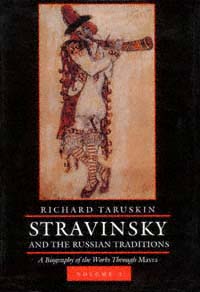 | Title: Stravinsky and the Russian traditions: a biography of the works through Mavra Author: Taruskin, Richard Published: University of California Press, 1996 Subjects: Music | Musicology | Russian and Eastern European Studies Publisher's Description: This book undoes 50 years of mythmaking about Stravinsky's life in music.During his spectacular career, Igor Stravinsky underplayed his Russian past in favor of a European cosmopolitanism. Richard Taruskin has refused to take the composer at his word. In this long-awaited study, he defines Stravinsky's relationship to the musical and artistic traditions of his native land and gives us a dramatically new picture of one of the major figures in the history of music.Taruskin draws directly on newly accessible archives and on a wealth of Russian documents. In Volume One, he sets the historical scene: the St. Petersburg musical press, the arts journals, and the writings of anthropologists, folklorists, philosophers, and poets. Volume Two addresses the masterpieces of Stravinsky's early maturity - Petrushka, The Rite of Spring, and Les Noces . Taruskin investigates the composer's collaborations with Diaghilev to illuminate the relationship between folklore and modernity. He elucidates the Silver Age ideal of "neonationalism" - the professional appropriation of motifs and style characteristics from folk art - and how Stravinsky realized this ideal in his music.Taruskin demonstrates how Stravinsky achieved his modernist technique by combining what was most characteristically Russian in his musical training with stylistic elements abstracted from Russian folklore. The stylistic synthesis thus achieved formed Stravinsky as a composer for life, whatever the aesthetic allegiances he later professed.Written with Taruskin's characteristic mixture of in-depth research and stylistic verve, this book will be mandatory reading for all those seriously interested in the life and work of Stravinsky. [brief] Similar Items |
| 4. | 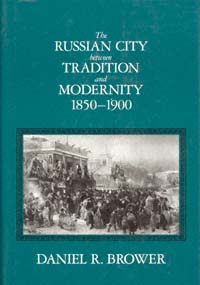 | Title: The Russian city between tradition and modernity, 1850-1900 Author: Brower, Daniel R Published: University of California Press, 1990 Subjects: History | European History | Russian and Eastern European Studies | Urban Studies Publisher's Description: The Russian City Between Tradition and Modernity provides a comprehensive history of urban development in European Russia during the last half of the nineteenth century. Using both statistical perspectives on urbanization and cultural representations of the city, Brower constructs a synthetic view of the remaking of urban Russia. He argues that the reformed municipalities succeeded in creating an embryonic civil society among the urban elite but failed to fashion a unified, orderly city. By the end of the century, the cities confronted social disorder of a magnitude that resembled latent civil war.Drawing on a wide range of archival and published sources, including census materials and reports from municipal leaders and tsarist officials, Brower offers a new approach to the social history of Russia. The author emphasizes the impact of the massive influx of migrants on the country's urban centers, whose presence dominated the social landscape of the city. He outlines the array of practices by which the migrant laborers adapted to urban living and stresses the cultural barriers that isolated them from the well-to-do urban population. Brower suggests that future scholarship should pay particular attention to the duality between the sweeping visions of social progress of the elite and the unique practices of the urban workforce. This contradiction, he argues, offers a key explanation for the social instability of imperial Russia in the closing decades of the nineteenth century. [brief] Similar Items |
| 5. | 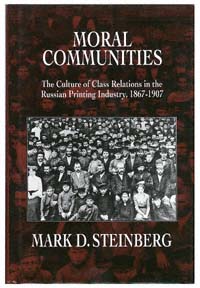 | Title: Moral communities: the culture of class relations in the Russian printing industry, 1867-1907 Author: Steinberg, Mark Published: University of California Press, 1992 Subjects: History | European History | Russian and Eastern European Studies Publisher's Description: This valuable study offers a rare perspective on the social and political crisis in late Imperial Russia. Mark D. Steinberg focuses on employers, supervisors, and workers in the printing industry as it evolved from a state-dependent handicraft to a capitalist industry. He explores class relations and the values, norms, and perceptions with which they were made meaningful. Using archival and printed sources, Steinberg examines economic changes, workplace relations, professional organizations, unions, strikes, and political activism, as well as shop customs, trade festivals, and everyday life. In rich detail he describes efforts to build a community of masters and men united by shared interests and moral norms. The collapse of this ideal in the face of growing class conflict is also explored, giving a full view of an important moment in Russian history. [brief] Similar Items |
| 6. | 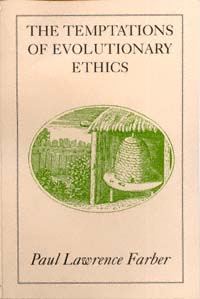 | Title: The temptations of evolutionary ethics Author: Farber, Paul Lawrence 1944- Published: University of California Press, 1994 Subjects: Philosophy | History | Ethics | History and Philosophy of Science Publisher's Description: Evolutionary theory tells us about our biological past; can it also guide us to a moral future? Paul Farber's compelling book describes a century-old philosophical hope held by many biologists, anthropologists, psychologists, and social thinkers: that universal ethical and social imperatives are built into human nature and can be discovered through knowledge of evolutionary theory.Farber describes three upsurges of enthusiasm for evolutionary ethics. The first came in the early years of mid-nineteenth century evolutionary theories; the second in the 1920s and '30s, in the years after the cultural catastrophe of World War I; and the third arrived with the recent grand claims of sociobiology to offer a sound biological basis for a theory of human culture.Unlike many who have written on evolutionary ethics, Farber considers the responses made by philosophers over the years. He maintains that their devastating criticisms have been forgotten - thus the history of evolutionary ethics is essentially one of oft-repeated philosophical mistakes.Historians, scientists, social scientists, and anyone concerned about the elusive basis of selflessness, altruism, and morality will welcome Farber's enlightening book. [brief] Similar Items |
| 7. | 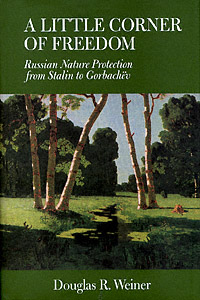 | Title: A little corner of freedom: Russian nature protection from Stalin to Gorbachëv Author: Weiner, Douglas R 1951- Published: University of California Press, 1999 Subjects: Russian and Eastern European Studies | Environmental Studies | Politics | History | History and Philosophy of Science | Ecology Publisher's Description: While researching Russia's historical efforts to protect nature, Douglas Weiner unearthed unexpected findings: a trail of documents that raised fundamental questions about the Soviet political system. These surprising documents attested to the unlikely survival of a critical-minded, scientist-led movement through the Stalin years and beyond. It appeared that, within scientific societies, alternative visions of land use, resrouce exploitation, habitat protection, and development were sustained and even publicly advocated. In sharp contrast to known Soviet practices, these scientific societies prided themselves on their traditions of free elections, foreign contacts, and a pre-revolutionary heritage.Weiner portrays nature protection activists not as do-or-die resisters to the system, nor as inoffensive do-gooders. Rather, they took advantage of an unpoliced realm of speech and activity and of the patronage by middle-level Soviet officials to struggle for a softer path to development. In the process, they defended independent social and professional identities in the face of a system that sought to impose official models of behavior, ethics, and identity for all. Written in a lively style, this absorbing story tells for the first time how organized participation in nature protection provided an arena for affirming and perpetuating self-generated social identities in the USSR and preserving a counterculture whose legacy survives today. [brief] Similar Items |
| 8. | 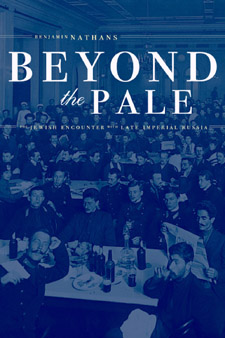 | Title: Beyond the pale: the Jewish encounter with late imperial Russia Author: Nathans, Benjamin Published: University of California Press, 2002 Subjects: History | Jewish Studies | Russian and Eastern European Studies Publisher's Description: A surprising number of Jews lived, literally and figuratively, "beyond the Pale" of Jewish Settlement in tsarist Russia during the half-century before the Revolution of 1917. Thanks to the availability of long-closed Russian archives, along with a wide range of other sources, Benjamin Nathans reinterprets the history of the Russian-Jewish encounter. In the wake of Russia's "Great Reforms," Nathans writes, a policy of selective integration stimulated social and geographic mobility among the empire's Jews. The reaction that culminated, toward the turn of the century, in ethnic restrictions on admission to universities, the professions, and other institutions of civil society reflected broad anxieties that Russians were being placed at a disadvantage in their own empire. Nathans's conclusions about the effects of selective integration and the Russian-Jewish encounter during this formative period will be of great interest to all students of modern Jewish and modern Russian history. [brief] Similar Items |
| 9. | 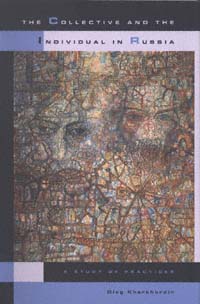 | Title: The collective and the individual in Russia: a study of practices Author: Kharkhordin, Oleg 1964- Published: University of California Press, 1999 Subjects: History | Social Theory | European History | Russian and Eastern European Studies | Intellectual History Publisher's Description: Oleg Kharkhordin has constructed a compelling, subtle, and complex genealogy of the Soviet individual that is as much about Michel Foucault as it is about Russia. Examining the period from the Russian Revolution to the fall of Gorbachev, Kharkhordin demonstrates that Party rituals - which forced each Communist to reflect intensely and repeatedly on his or her "self," an entirely novel experience for many of them - had their antecedents in the Orthodox Christian practices of doing penance in the public gaze. Individualization in Soviet Russia occurred through the intensification of these public penitential practices rather than the private confessional practices that are characteristic of Western Christianity. He also finds that objectification of the individual in Russia relied on practices of mutual surveillance among peers, rather than on the hierarchical surveillance of subordinates by superiors that characterized the West. The implications of this book expand well beyond its brilliant analysis of the connection between Bolshevism and Eastern Orthodoxy to shed light on many questions about the nature of Russian society and culture. [brief] Similar Items |
| 10. | 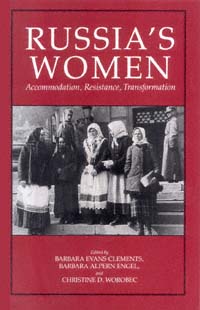 | Title: Russia's women: accommodation, resistance, transformation Author: Clements, Barbara Evans 1945- Published: University of California Press, 1991 Subjects: History | European History | Women's Studies | Russian and Eastern European Studies Publisher's Description: By ignoring gender issues, historians have failed to understand how efforts to control women - and women's reactions to these efforts - have shaped political and social institutions and thus influenced the course of Russian and Soviet history. These original essays challenge a host of traditional assumptions by integrating women into the Russian past. Using recent advances in the study of gender, the family, class, and the status of women, the authors examine various roles of Russian women and offer a broad overview of a vibrant and growing field. [brief] Similar Items |
| 11. | 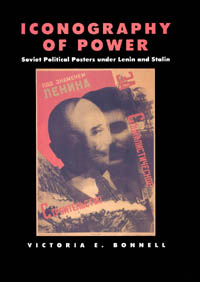 | Title: Iconography of power: Soviet political posters under Lenin and Stalin Author: Bonnell, Victoria E Published: University of California Press, 1998 Subjects: Sociology | Popular Culture | European Studies | Russian and Eastern European Studies | Politics | Art Criticism | History | European History Publisher's Description: Masters at visual propaganda, the Bolsheviks produced thousands of vivid and compelling posters after they seized power in October 1917. Intended for a semi-literate population that was accustomed to the rich visual legacy of the Russian autocracy and the Orthodox Church, political posters came to occupy a central place in the regime's effort to imprint itself on the hearts and minds of the people and to remold them into the new Soviet women and men. In this first sociological study of Soviet political posters, Victoria Bonnell analyzes the shifts that took place in the images, messages, styles, and functions of political art from 1917 to 1953. Everyone who lived in Russia after the October revolution had some familiarity with stock images of the male worker, the great communist leaders, the collective farm woman, the capitalist, and others. These were the new icons' standardized images that depicted Bolshevik heroes and their adversaries in accordance with a fixed pattern. Like other "invented traditions" of the modern age, iconographic images in propaganda art were relentlessly repeated, bringing together Bolshevik ideology and traditional mythologies of pre-Revolutionary Russia. Symbols and emblems featured in Soviet posters of the Civil War and the 1920s gave visual meaning to the Bolshevik worldview dominated by the concept of class. Beginning in the 1930s, visual propaganda became more prescriptive, providing models for the appearance, demeanor, and conduct of the new social types, both positive and negative. Political art also conveyed important messages about the sacred center of the regime which evolved during the 1930s from the celebration of the heroic proletariat to the deification of Stalin. Treating propaganda images as part of a particular visual language, Bonnell shows how people "read" them - relying on their habits of seeing and interpreting folk, religious, commercial, and political art (both before and after 1917) as well as the fine art traditions of Russia and the West. Drawing on monumental sculpture and holiday displays as well as posters, the study traces the way Soviet propaganda art shaped the mentality of the Russian people (the legacy is present even today) and was itself shaped by popular attitudes and assumptions. Iconography of Power includes posters dating from the final decades of the old regime to the death of Stalin, located by the author in Russian, American, and English libraries and archives. One hundred exceptionally striking posters are reproduced in the book, many of them never before published. Bonnell places these posters in a historical context and provides a provocative account of the evolution of the visual discourse on power in Soviet Russia. [brief] Similar Items |
| 12. |  | Title: King Charles I Author: Gregg, Pauline Published: University of California Press, 1984 Subjects: History | European History Publisher's Description: This is a lucid, fair-minded account of a difficult and tragic man. Pauline Gregg has drawn heavily on original documents, letters, and speeches to show how Charles's heritage, upbringing, and personality, as well as his relationships with friends, advisors, and favorites, all took place against a b . . . [more] Similar Items |
| 13. | 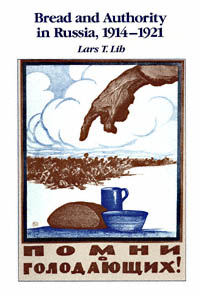 | Title: Bread and authority in Russia, 1914-1921 Author: Lih, Lars T Published: University of California Press, 1990 Subjects: History | European History | Politics | Russian and Eastern European Studies Publisher's Description: Between 1914 and 1921, Russia experienced a national crisis that destroyed the tsarist state and led to the establishment of the new Bolshevik order. During this period of war, revolution, and civil war, there was a food-supply crisis. Although Russia was one of the world's major grain exporters, the country was no longer capable of feeding its own people. The hunger of the urban workers increased the pace of revolutionary events in 1917 and 1918, and the food-supply policy during the civil war became the most detested symbol of the hardships imposed by the Bolsheviks.Focusing on this crisis, Lars Lih examines the fundamental process of political and social breakdown and reconstitution. He argues that this seven-year period is the key to understanding the Russian revolution and its aftermath. In 1921 the Bolsheviks rejected the food-supply policy established during the civil war; sixty-five years later, Mikhail Gorbachev made this change of policy a symbol of perestroika. Since then, more attention has been given both in the West and in the Soviet Union to the early years of the revolution as one source of the tragedies of Stalinist oppression.Lih's argument is based on a great variety of source material - archives, memoirs, novels, political rhetoric, pamphlets, and propoganda posters. His new study will be read with profit by all who are interested in the drama of the Russian revolution, the roots of both Stalinism and anti-Stalin reform, and more generally in a new way of understanding the effects of social and political breakdown. [brief] Similar Items |
| 14. | 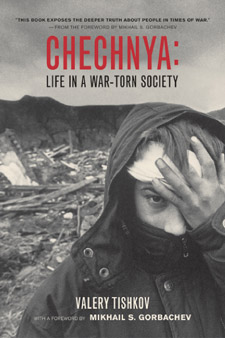 | Title: Chechnya: life in a war-torn society Author: Tishkov, Valeriĭ Aleksandrovich Published: University of California Press, 2004 Subjects: Anthropology | Ethnic Studies | European History | Sociology | Russian and Eastern European Studies Publisher's Description: This book illuminates one of the world's most troubled regions from a unique perspective - that of a prominent Russian intellectual. Valery Tishkov, a leading ethnographer who has also served in several important political posts, examines the evolution of the war in Chechnya that erupted in 1994, untangling the myths, the long-held resentments, and the ideological manipulations that have fueled the crisis. In particular, he explores the key themes of nationalism and violence that feed the turmoil there. Forceful, original, and timely, his study combines extensive interview material, historical perspectives, and deep local knowledge. Tishkov sheds light on Chechnya in particular and on how secessionist conflicts can escalate into violent conflagrations in general. With its balanced assessments of both Russian and Chechen perspectives, this book will be essential reading for people seeking to understand the role of Islamic fundamentalist nationalism in the contemporary world. [brief] Similar Items |
| 15. | 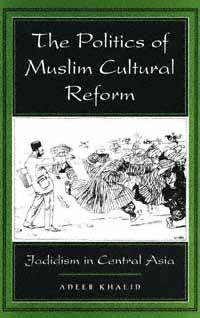 | Title: The politics of Muslim cultural reform: jadidism in Central Asia Author: Khalid, Adeeb 1964- Published: University of California Press, 1999 Subjects: History | Middle Eastern History | Russian and Eastern European Studies | Middle Eastern Studies | Islam | Asian Studies | Asian History | European History Publisher's Description: Adeeb Khalid offers the first extended examination of cultural debates in Central Asia during Russian rule. With the Russian conquest in the 1860s and 1870s the region came into contact with modernity. The Jadids, influential Muslim intellectuals, sought to safeguard the indigenous Islamic culture by adapting it to the modern state. Through education, literacy, use of the press and by maintaining close ties with Islamic intellectuals from the Ottoman empire to India, the Jadids established a place for their traditions not only within the changing culture of their own land but also within the larger modern Islamic world.Khalid uses previously untapped literary sources from Uzbek and Tajik as well as archival materials from Uzbekistan, Russia, Britain, and France to explore Russia's role as a colonial power and the politics of Islamic reform movements. He shows how Jadid efforts paralleled developments elsewhere in the world and at the same time provides a social history of the Jadid movement. By including a comparative study of Muslim societies, examining indigenous intellectual life under colonialism, and investigating how knowledge was disseminated in the early modern period, The Politics of Muslim Cultural Reform does much to remedy the dearth of scholarship on this important period. Interest in Central Asia is growing as a result of the breakup of the former Soviet Union, and Khalid's book will make an important contribution to current debates over political and cultural autonomy in the region. [brief] Similar Items |
| 16. | 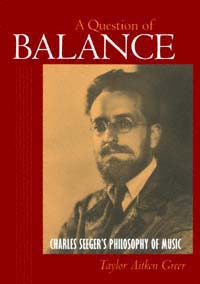 | Title: A question of balance: Charles Seeger's philosophy of music Author: Greer, Taylor Aitken 1955- Published: University of California Press, 1998 Subjects: Music | Ethnomusicology | Musicology | Composers Publisher's Description: One of this century's most influential musical intellects takes center stage in Taylor Greer's meticulously wrought study of Charles Seeger (1886-1979). Seeger left an indelible mark in the fields of musicology, music criticism, ethnomusicology, and avant-garde musical composition, but until now there has been no extended appreciation and critique of Seeger's work as a whole, nor has an accessible guide to his texts been available.Exploring the entire corpus of Charles Seeger's writing, A Question of Balance highlights the work of those persons who most influenced him, especially Henri Bergson, Bertrand Russell, and Ralph Perry. Invited to inaugurate the music department at the University of California's Berkeley campus in 1912, Seeger became keenly aware of his deficiencies in general education and put himself on a rigorous regimen of intellectual development that included studying history, anthropology, political theory, and philosophy. For the remainder of his life his ideas about music heavily influenced the development of ethnomusicology and systematic musicology.Charles Seeger is perhaps best known as the father of the folk singers Pete, Mike, and Peggy Seeger and as the husband of the innovative American composer Ruth Crawford. This book makes clear that Seeger was an extremely important thinker and educator in his own right. Seeger's intellectual curiosity was as eclectic as it was enthusiastic, and Greer skillfully weaves together the connections Seeger made between music, the humanities, and the sciences. The result is a luminous tapestry depicting Seeger's ideal schemes of musicology. At the same time it reflects the turbulence and vitality in American musical life during the early decades of the century. [brief] Similar Items |
| 17. | 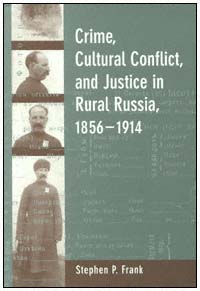 | Title: Crime, cultural conflict, and justice in rural Russia, 1856-1914 Author: Frank, Stephen 1955- Published: University of California Press, 1999 Subjects: History | Russian and Eastern European Studies | Cultural Anthropology | Social Problems | European History | Law | Criminology Publisher's Description: This book is the first to explore the largely unknown world of rural crime and justice in post-emancipation Imperial Russia. Drawing upon previously untapped provincial archives and a wealth of other neglected primary material, Stephen P. Frank offers a major reassessment of the interactions between peasantry and the state in the decades leading up to World War I. Viewing crime and punishment as contested metaphors about social order, his revisionist study documents the varied understandings of criminality and justice that underlay deep conflicts in Russian society, and it contrasts official and elite representations of rural criminality - and of peasants - with the realities of everyday crime at the village level. [brief] Similar Items |
| 18. | 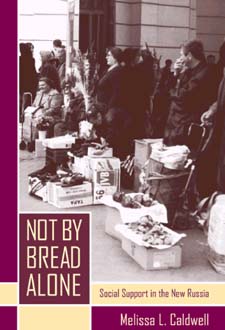 | Title: Not by bread alone: social support in the new Russia Author: Caldwell, Melissa L 1969- Published: University of California Press, 2004 Subjects: Anthropology | Russian and Eastern European Studies | European Studies Publisher's Description: What Muscovites get in a soup kitchen run by the Christian Church of Moscow is something far more subtle and complex - if no less necessary and nourishing - than the food that feeds their hunger. In Not by Bread Alone, the first full-length ethnographic study of poverty and social welfare in the postsocialist world, Melissa L. Caldwell focuses on the everyday operations and civil transactions at CCM soup kitchens to reveal the new realities, the enduring features, and the intriguing subtext of social support in Russia today. In an international food aid community, Caldwell explores how Muscovites employ a number of improvisational tactics to satisfy their material needs. She shows how the relationships that develop among members of this community - elderly Muscovite recipients, Russian aid workers, African student volunteers, and North American and European donors and volunteers - provide forms of social support that are highly valued and ultimately far more important than material resources. In Not by Bread Alone we see how the soup kitchens become sites of social stability and refuge for all who interact there - not just those with limited financial means - and how Muscovites articulate definitions of hunger and poverty that depend far more on the extent of one's social contacts than on material factors. By rethinking the ways in which relationships between social and economic practices are theorized - by identifying social relations and social status as Russia's true economic currency - this book challenges prevailing ideas about the role of the state, the nature of poverty and welfare, the feasibility of Western-style reforms, and the primacy of social connections in the daily lives of ordinary people in post-Soviet Russia. [brief] Similar Items |
| 19. | 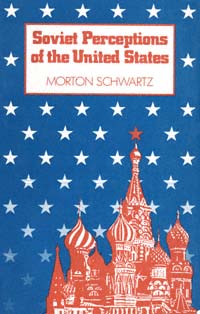 | Title: Soviet perceptions of the United States Author: Schwartz, Morton Published: University of California Press, 1980 Subjects: Politics Similar Items |
| 20. | 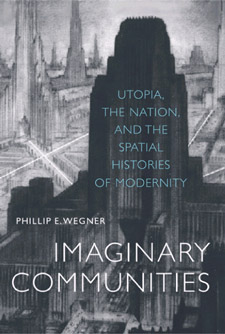 | Title: Imaginary communities: utopia, the nation, and the spatial histories of modernity Author: Wegner, Phillip E 1964- Published: University of California Press, 2002 Subjects: Literature | Literary Theory and Criticism | Politics | Social and Political Thought Publisher's Description: Drawing from literary history, social theory, and political critique, this far-reaching study explores the utopian narrative as a medium for understanding the social space of the modern nation-state. Considering the narrative utopia from its earliest manifestation in Thomas More's sixteenth-century work Utopia to some of the most influential utopias of the late nineteenth and twentieth centuries, this book is an astute study of a literary genre as well as a nuanced dialectical meditation on the history of utopian thinking as a quintessential history of modernity. As he unravels the dialectics at work in the utopian narrative, Wegner gives an ambitious synthetic discussion of theories of modernity, considering and evaluating the ideas of writers such as Ernst Bloch, Louis Marin, Gilles Deleuze, Walter Benjamin, Martin Heidegger, Henri Lefebvre, Paul de Man, Karl Mannheim, Mikhail Bakhtin, Jürgen Habermas, Slavoj Zizek, and Homi Bhabha. [brief] Similar Items |